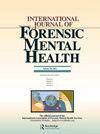Knowledge and Opinions of Fitness to Stand Trial Elements in Australia
IF 0.9
4区 医学
Q3 CRIMINOLOGY & PENOLOGY
International Journal of Forensic Mental Health
Pub Date : 2021-08-09
DOI:10.1080/14999013.2021.1966140
引用次数: 1
Abstract
Abstract Fitness to stand trial (equivalent to competency to stand trial) requires that defendants have a basic understanding of the purpose of the trial and the trial procedures. Little is known, however, about what constitutes a basic factual understanding of the matters. This study developed a legal knowledge survey in which participants were asked to define legal concepts and respond to legal scenarios. They then rated the importance of each component of the fitness to stand trial test to achieving a fair trial. Participants (N = 393; females 69.7%) aged between 18 and 66-years (M = 31.26-years, SD = 11.48-years) from each Australian state and territory completed the online survey. Legal knowledge was high (86.5% correct) and there was no difference between participants on any clinical (e.g., current or past mental illness, neurological conditions), criminological (e.g., criminal history), or demographic variable (e.g., gender, employment, education), except age (curvilinear R2 = .12). Participants under 30-years old used significantly more Americanisms on difficult items compared with participants over 30-years old. On average, participants rated almost every component of the legal test as “extremely important” to a fair trial. The legal knowledge survey had good psychometric properties (Cronbach’s α = .86, interrater reliability ĸ > .80 on most variables, single solution factor analysis). Overall, the results support the presumption underpinning the Australian test for fitness, which is that people possess a basic factual understanding of a trial and trial procedures. Further research should focus on testing knowledge in special populations (e.g., mental illness, dementia, intellectual disability).澳大利亚适格审判要件的认识与看法
出庭适格(相当于出庭适格)要求被告对审判目的和审判程序有基本的认识。然而,对于什么构成了对这些问题的基本事实理解,人们知之甚少。本研究开发了一项法律知识调查,要求参与者定义法律概念并对法律场景做出反应。然后,他们评估了接受审判测试的每个组成部分对实现公平审判的重要性。参与者(N = 393;来自澳大利亚各州和领地的年龄在18至66岁之间(M = 31.26岁,SD = 11.48岁)的女性69.7%完成了在线调查。法律知识很高(正确率为86.5%),除年龄外,参与者在任何临床(如当前或过去的精神疾病、神经系统疾病)、犯罪学(如犯罪史)或人口统计学变量(如性别、就业、教育)上均无差异(曲线R2 = .12)。与30岁以上的参与者相比,30岁以下的参与者在困难问题上使用的美国语明显更多。平均而言,参与者认为法律测试的几乎每一个组成部分对公平审判都“极其重要”。法律知识调查具有良好的心理测量性质(Cronbach 's α = 0.86,大部分变量的互信度为0.80,单解因子分析)。总的来说,研究结果支持了澳大利亚健康测试的假设,即人们对试验和试验程序有基本的事实性理解。进一步的研究应侧重于在特殊人群(如精神疾病、痴呆、智力残疾)中测试知识。
本文章由计算机程序翻译,如有差异,请以英文原文为准。
求助全文
约1分钟内获得全文
求助全文

 求助内容:
求助内容: 应助结果提醒方式:
应助结果提醒方式:


